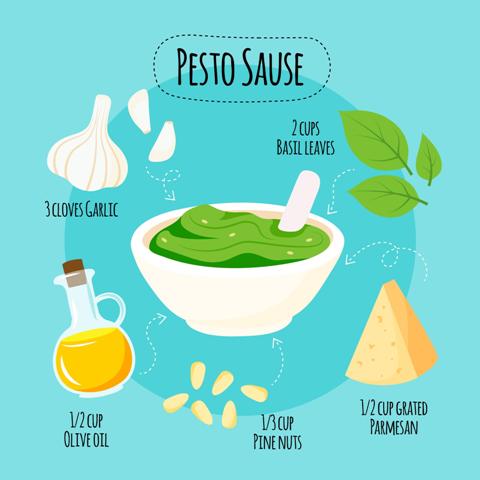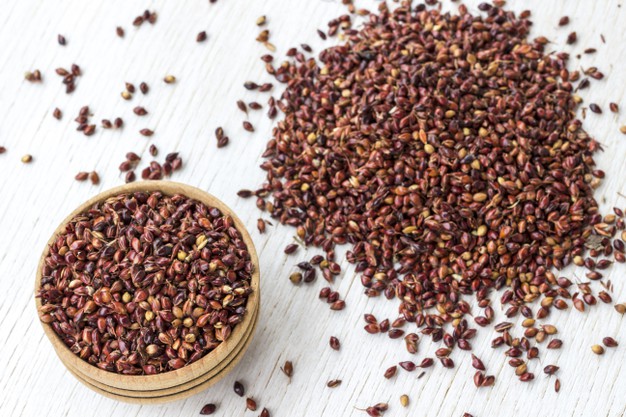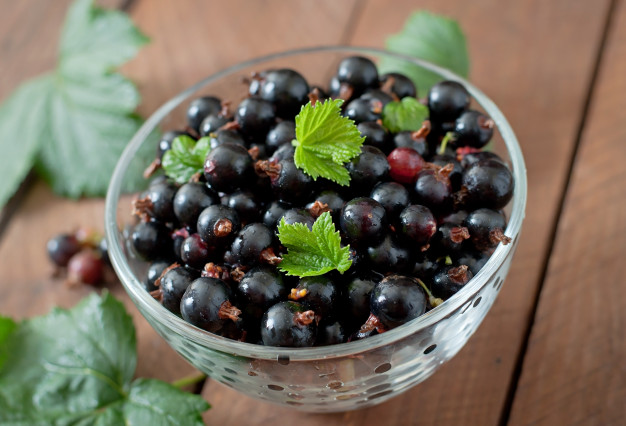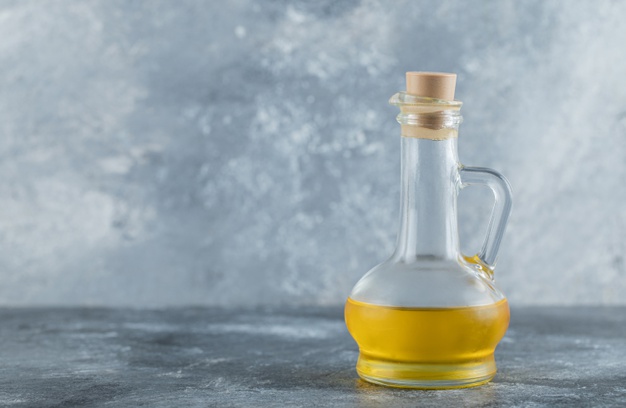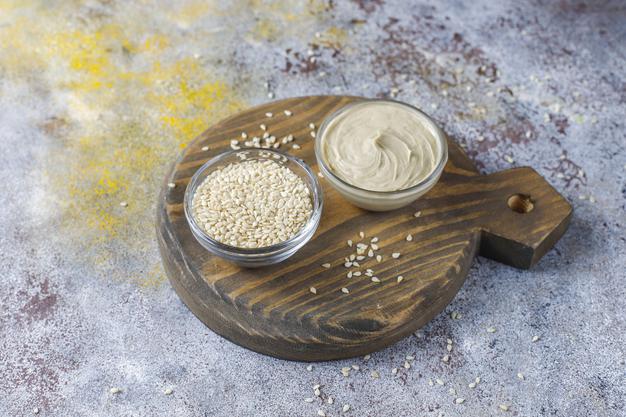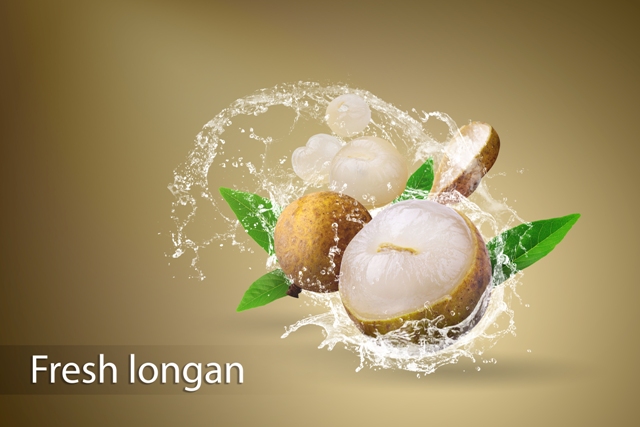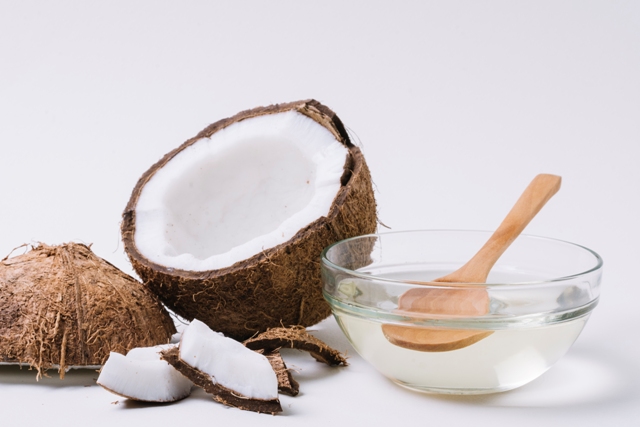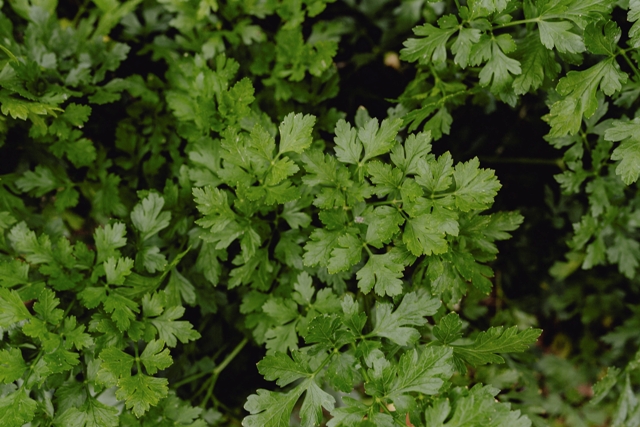Any uncooked sauce, which is basically prepared by grinding or crushing ingredients into a paste, is generally termed as pesto. Pesto has its origin in Italy and this Italian word pesto means “to pound or crush.” It has been traditionally used for various culinary purposes and it offers numerous health benefits as well.
How pesto is prepared?
The main ingredients of pesto are fresh basil leaves, olive oil especially extra virgin olive oil, garlic, pine nuts, parmesan or pecorino cheese and salt. All of these ingredients are mixed well through blender or by using a mortar and pestle to produce a fine paste
Nutritional profile
Carbohydrate
- It contains desirable amount of carbohydrates
- Carbohydrates present in pesto are generally sugar, starch and sugar alcohol
- It contains fibre as well
Protein
- It contains too some extent of protein
- It is composed of various important amino acids
Fat
- It contains significant amount of fat
- It contains both saturated fat and unsaturated fat
- It contains monounsaturated fatty acid as well as polyunsaturated acid thus it is considered as a healthy fat
- It contains too some extent of cholesterol as well


Vitamins
- It is loaded with several vitamins, which are associated with performing various biochemical functions of body
- It contains desirable amount of Vitamin A that helps in promoting eye health and vision. It also helps to decreases the prevalence of eye disorders
- It contains B vitamins too and especially rich in Vitamin B1, B2, B3, B5 and B6, all of which are closely associated with improving metabolism as they participate in various metabolic reactions of body in the form of coenzymes
- It also contains Vitamin D, Vitamin K, Vitamin C and choline
Minerals
- It contains several important trace elements, which offers numerous health benefits
- Its calcium and phosphorus component help in strengthening skeletal system
- Its iron and copper components are accountable for improving circulation
- It also contains magnesium, selenium, sodium, potassium and zinc
Biological activity
Antioxidant activity
- It is packed with antioxidants and play important role in protecting the body from the harmful effects of oxidative damages
- It helps to decrease the concentration of free radicals and reactive oxygen species in body hence protects the body from their harmful effects, which ultimately decrease the risk of developing chronic diseases
- It helps to prevent lipid peroxidation as well
- It is also associated with promoting wellbeing by preventing cellular damages

Anti-inflammatory activity
- It contains various imperative components that exert anti-inflammatory activities, which are accountable for delaying the progression of inflammatory events within body hence lowers the prevalence of chronic inflammatory diseases
- It is closely related with decreasing the concentration of inflammatory mediators in body, which are responsible for triggering inflammation
- It also helps to prevent swelling as well as pain
Anti-carcinogenic activity
- As it is associated with decreasing oxidative stress thus its consumption is thought to be very effective for lowering the risk of developing cancers
- It helps in hindering the growth of malignant cells in body and also prevents their metastasis
- It helps to inhibit the growth of tumor cell as well
- It is extremely effective for decreasing the prevalence of liver, stomach and pancreatic cancer
Antimicrobial activity
- It is composed of various important components that are accountable for exhibiting antimicrobial activities
- It helps to inhibit the growth and replication of microbial cells within host as a result decreases the prevalence of infectious diseases
Health benefits
 Role on cardiac health
Role on cardiac health
- Its micronutrient components and phytonutrient components are responsible for promoting cardiac health as well as functionality
- It is also associated with preventing atherosclerosis by inhibiting fat deposition within blood vessels thus decreases the prevalence of coronary artery disease
- It helps to improve endothelial functions as well by preventing the hardening of blood vessels due to excessive fat deposition or plaque formation
- It plays significant role in decreasing the prevalence of heart attack and stroke
- Its potassium component is responsible for preventing hypertension
- Its magnesium component is also accountable for maintaining normal heart beat
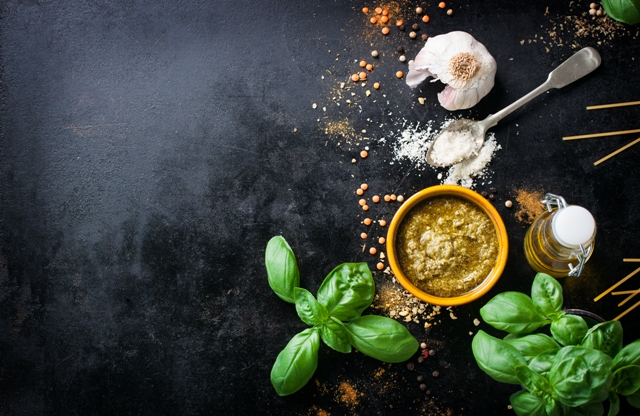
Hypoglycemic effect
- It helps in decreasing blood sugar concentration thus it can be easily included in the diet of diabetic patients
- It helps to improve insulin sensitivity, which helps to stabilize blood sugar level
- Whereas its fibre content is also responsible for decreasing postprandial blood glucose load by decreasing the rate of glucose absorption from intestine
Hypolipidemic activity
- It mainly helps to reduce the concentration of LDL, VLDL and triglyceride in body whereas helps in improving HDL concentration
- Consumption of pesto is very much useful for maintaining a healthy lipid profile as it helps in maintaining a healthy ratio of LDL and HDL

Role on nervous system
- It helps to promote the health and functionality of nervous system
- It helps to improve the activity of nerve cells by protecting them from oxidative and inflammatory damages
- It plays significant role in decreasing the prevalence of Alzheimer’s disease and dementia
Role on skeletal health
- Calcium and phosphorus components of pesto play important role in strengthening the skeletal system as these two minerals are considered as the principal minerals required for healthy bone formation
- It helps to improve bone mass as well as bone mineral density, which ultimately helps to decrease the prevalence of bone thinning hence reduces the risk of fractures
- Its Vitamin K component is also responsible for improving skeletal health as it helps in bone metabolism
- It helps in healthy tooth formation too
Role on skin
- It contains various imperative nutrients that help to provide proper nourishment to the skin, which ultimately help to make the skin healthy and supple
- It helps in preventing ageing
- It helps to improve skin glow
- Its Vitamin C component is responsible for improving skin elasticity as it is related with enhancing collagen synthesis
Other health benefits

- It helps in strengthening immune system. Its antioxidant activities are responsible for protecting immune cells from oxidative damages as a result enhances their activity, which ultimately improves the resistance power of the body
- It helps to promote the growth and development of connective tissues as its Vitamin C component plays vital role in stimulating collagen production, which is considered as an imperative substance of connective tissue
- It helps to decrease the prevalence of fatty liver diseases and gall stones by reducing cholesterol concentration in body
- Consumption of pesto is very effective for enhancing the absorption of other nutrients like zinc, iron, magnesium etc from gastrointestinal epithelial cell
Culinary uses
It is widely used for preparing a variety of dishes, like –
- It can be added to pasta
- It can also be used as salad dressing
- It can be added to fish or meat preparation before consumption
- It can be used as pizza topping too
- It can be well utilized as a spread for bread
- It can be also used as a substitute for mayonnaise
- It can be used on sandwiches as well
- It can be brushed on to chicken or fish before grilling
- You can easily mix it into your favorite dips as well
Risk factors

Excessive consumption of pesto is not good for health as it increases the prevalence of digestive disorders and hypertension. So it is better to use it in moderation.
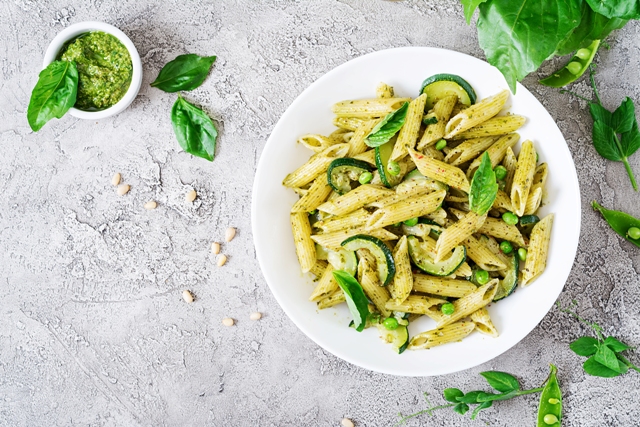
Source:
Caggiano, G., Diella, G., Trerotoli, P., Lopuzzo, M., Triggiano, F., Ricci, M., Marcotrigiano, V., Montagna, M.T. and De Giglio, O., 2020. A Pilot Survey on Hygienic–Sanitary Characteristics of Ready-To-Eat Sauces and Pesto. International Journal of Environmental Research and Public Health, 17(14), p.5005.
Mitić‐Ćulafić, D.S., Pavlović, M., Ostojić, S. and Knezević‐Vukčević, J., 2014. Antimicrobial effect of natural food preservatives in fresh basil‐based pesto spreads. Journal of Food Processing and Preservation, 38(3), pp.1298-1306.
Park, J.W., Kim, K.B. and Choi, S.K., 2016. Quality characteristics of basil pesto added with various nuts during storage. Culinary science and hospitality research, 22(2), pp.29-43.
Pesto, H., HERB PESTO.
Stones Ingredients, R., Vegan Pesto.
